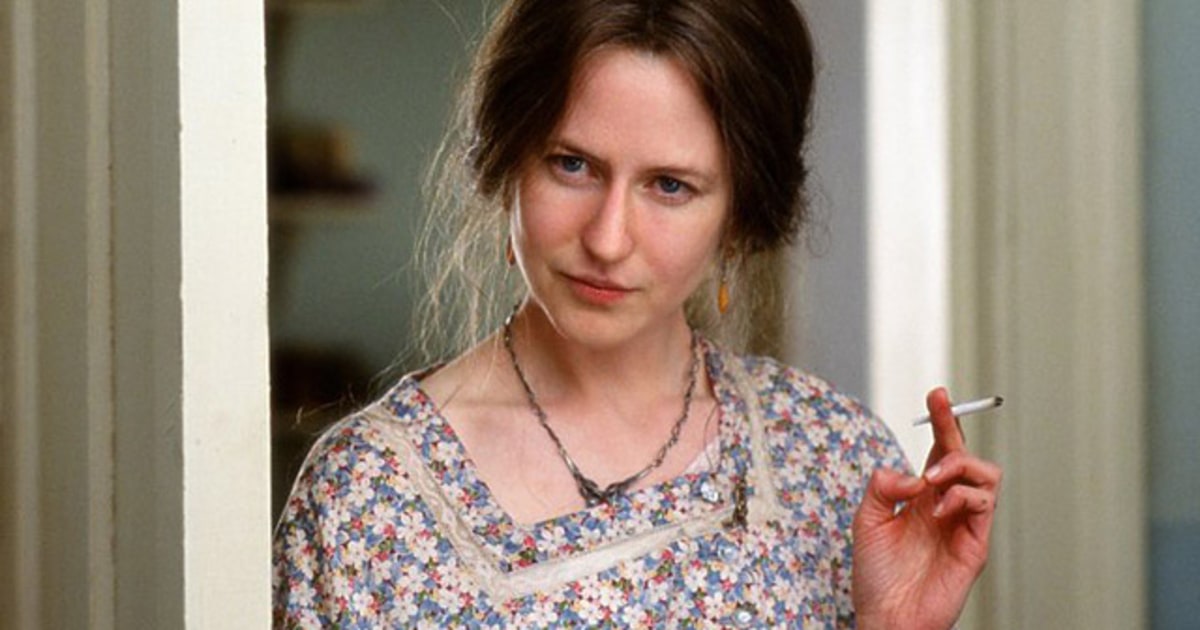
The Oscars have always been so much more than just the movies. Between the red carpet, the after-parties and the on-stage performances, discussion about the quality of cinema being honored has had to content itself with a subdued attention of mainstream audiences. Some years down the road, the memory of a certain artist holding an Oscar is less unambiguous than the intricacies of the work that got them there.
So often the discussion shifts to performances and films left out by the Academy, movies that are not on most people’s radar and while that discussion is indispensible, the work honored is quickly forgotten, with the consequence that even bringing up something that won an Oscar in the past as something not discussed enough begins to seem not as preposterous as it would on the surface.
One of the problems here is the incontestable fact that the performance alone never got anyone the Oscar. An ineradicable narrative has become a must for building enough steam to land the golden trophy, especially considering the predictions and campaigning industry that has started to appear more and more like well-oiled machinery that influences more than actual artistic merit.
Not that the Academy lacks the ability to surprise and anoint a winner that didn’t have the campaigning zeitgeist-capturing prowess of the presumed frontrunner. The victory of the small indie that had an all-black cast over a studio musical that had tied the record for the highest number of nominations is a fairly elucidative example of that.
While mainstream audiences are getting increasingly skeptical of serious cinema awarded by the organization, cinephiles are drifting away from the films under the Academy’s radar. Their skepticism is not entirely misplaced: Oscar’s tradition of honoring mediocre work that has garnered universal approval and is rubber-stamped by other awards organizations has put the ability of experimental films to be made on substantial budgets into question.
After all, the Academy still retains the power to impact box-office numbers even if the commercial viability of low-scale movies is debatable. What this does is reduce the degree of appreciation that an artistic accomplishment that ended in an Oscar victory is able to accumulate as more and more time passes. “It already won the Oscar, do we really need to belabor its significance?” is one of the most recurrent arguments.
Contrary to popular belief, our short-term memories might end up denying the generations coming behind us the opportunity to discover a note-worthy achievement if its merits are dismissed as soon as an Oscar is handed to the person behind it. For avoiding that, here are the 15 greatest Oscar-winning performances no one talks about.
15. Fredric March – Dr. Jekyll and Mr. Hyde
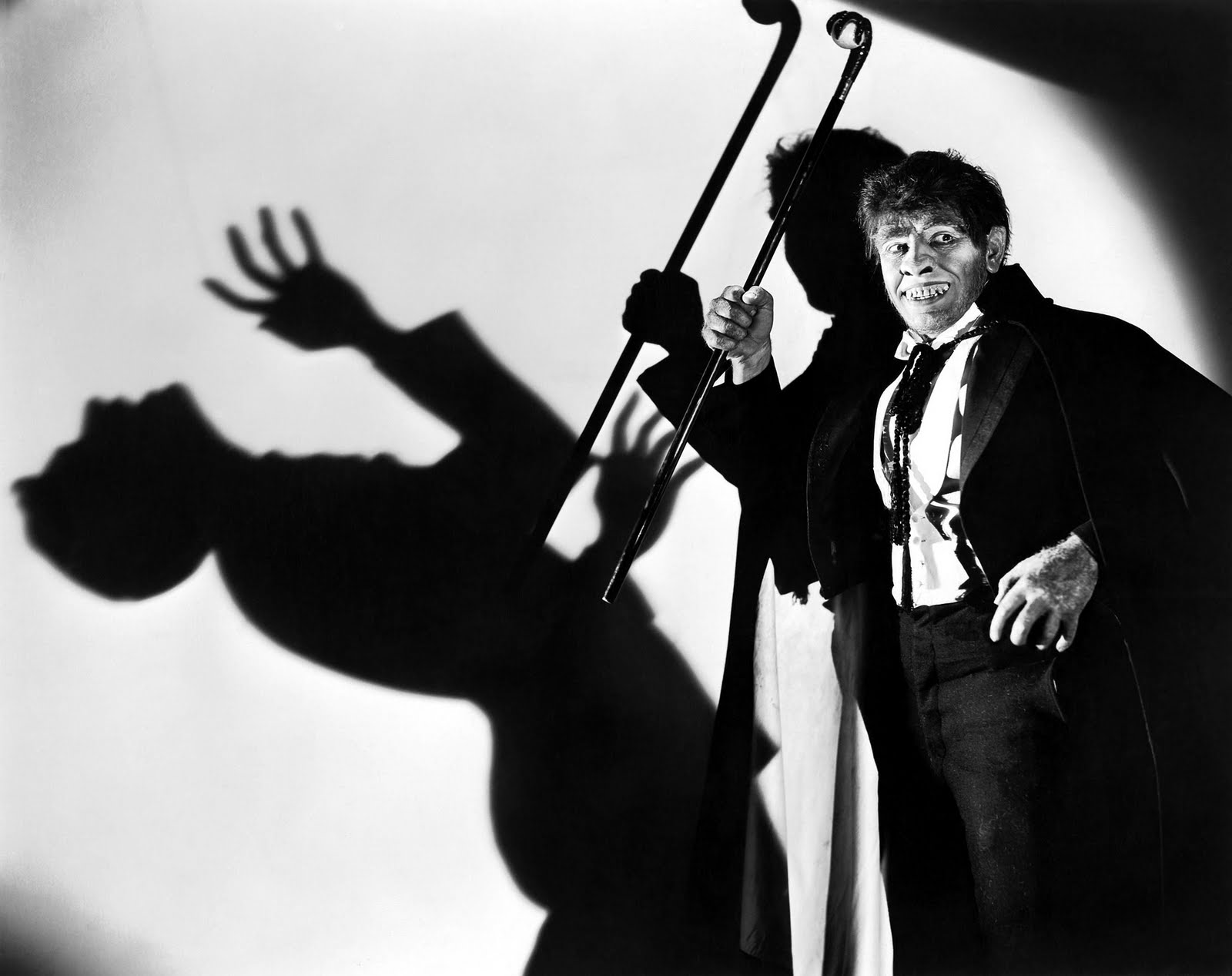

The only actor two receive both the Tony and the Oscar twice, Fredric March is surprisingly one of the lesser-known greats amongst the contemporary audiences. While his roles in the original “A Star is Born” and William Wyler’s “The Best Years of Our Lives” have lasted longer in the collective cinematic consciousness of those among us who are acquainted with his work, his greatest accomplishment was his iconic double role in in the 1932 classic “Dr. Jekyll and Mr. Hyde”.
Itself an underrated film, whose influences can be seen in films like “Black Swan”, which won another actor a highly worthy Oscar, it revolves around a Dr. Henry Jekyll, soon to marry the love of his life Muriel Carew, develop a potion that transforms him into an evil, primitive looking, and untamed, monstrous version of himself who is named Edward Hyde. This Hyde than causes havoc in the lives of all he comes across, and even in the absence of the drug, does not allow Dr. Jekyll to escape him.
March’s purposefully manic performance captures the many people we harbor beneath our deceitful exteriors, threatening to burst out. He is inexplicably charming and sensitive as the gracefully intelligent Dr. Hyde while frighteningly indecorous when Hyde decides to show himself, but he imbues Hyde’s bleak existence with a haunting sadness that makes us feel as if the shadow of his decency still hovers somewhere. Its theatricality might be too much for some palates, but if one permits him to slowly get under your skin, few performances work as effectively.
14. Jim Broadbent – Iris
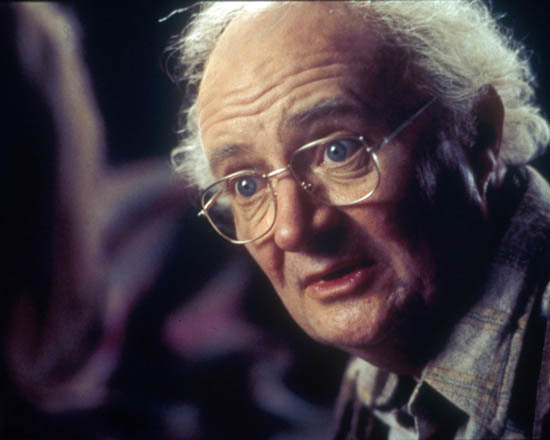
Jim Broadbent is one of those actors who seem to be playing the same kind of roles over and over. His style, on the surface, seems to constantly chart the same sentimental, studied territories that mostly lend themselves to memorable character roles, but hardly ever a substantial leading one. His work in the Harry Potter films is subtly humorous, while is crackling rendition of the cabaret owner Harold Zigler is one of “Moulin Rouge’s” many tangy delights.
But his most monumental and profound work is found in Richard Eyre’s competently made biopic “Iris”, which stars him as John Bayley, husband to famous Irish author Iris Murdoch in the later stages of their lives as Iris suffers from dementia and starts to lose all of her feistiness and zest for life. This is intercut with recollections of the time they began their relationship in the 1950s and how the contrast between the two draws them closer.
The greatest challenge when you’re playing the older version of your character is to maintain consistency with the younger characterization while being seamlessly reflective of a person’s evolution through life.
Broadbent shines as he portrays all of Bayley’s most intimate fallibilities with endless apt. He conveys the anguish of living with a person to whom everything seems to gradually fading, and still reminds us of the resilience it requires to stay true to a love whose traces become increasingly few and infrequent.
13. Geena Davis – The Accidental Tourist
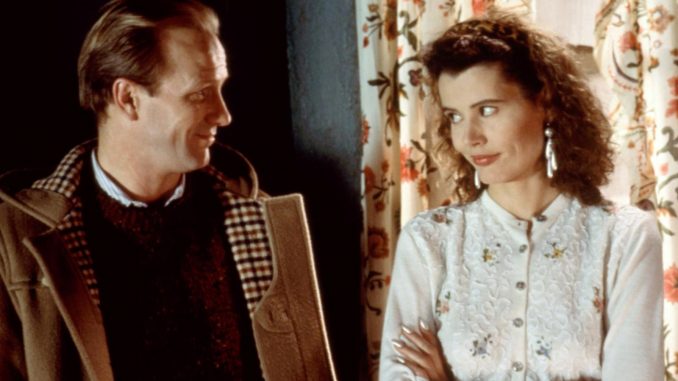
What most people remember from the 1989 Oscars is how unkind they were to an actress at the peak of her career. Sigourney Weaver became the first performer in history to be nominated in both the Supporting Actress and Leading Actress categories in the same year and lose them both.
While her win in the Lead Actress category was uncertain, most were betting on her work in the iconic “Working Girl”. The Oscar instead went to Geena Davis, who hadn’t received a single nomination in other award ceremonies for her role in this Lawrence Kasdan masterpiece.
Davis plays an eccentric, off-kilter dog trainer called Muriel Pritchett who meets the hardened, imperturbable Macon Leary who has lost a son and whose wife has left him. He has, as a consequence, become a man whose detachment to all the highs and lows of life are beginning to threaten the possibility of him ever bonding with anyone. Muriel is willing to give him the affection that he needs and their brittle, uncertain relationship forms the center of this feel-good film.
Davis plays Muriel as if she’s lived her life for decades. Her eyes betray how much more she knows of the world than Macon, and how much she’s learned to accept and find joy amongst all its tribulations. Her electric absurdity sends sparks through this witty adaptation, saving it from becoming an inconsequential study in loneliness, transforming it to charming, calmly reassuring portrait of companionship.
12. Edmund Gwenn – Miracle on 34th Street
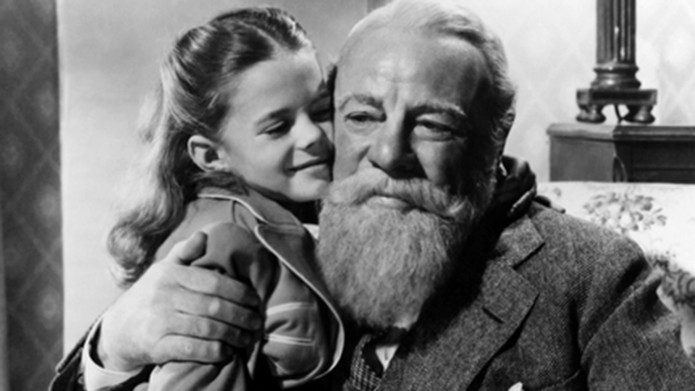
Stage actors always know the tenacity their profession requires. Believability is essential, but the experience must arouse all possible range of feelings intended in a very short span of time. The audiences’ comprehension of what they are feeling and why is secondary to the very surety that they feel something. Gwenn, a famous stage actor, is inept at making us feel all of the narrative’s intentions, without making it ostensibly clear how he made it possible.
Gwenn plays the ultimate screen Santa Claus in this Christmas classic, which deals with very traditionalistic themes of faith and fantasy without ever overplaying them. Kris Kringle, who is hired by a Doris Walker to be the Santa at a Macy’s department store, begins to believe and impose said belief on others, that he is the real deal. Things escalate, landing him in a court having to prove his phantasmal claims.
Gwenn is heartwarming and endearing in the most classical of senses. You never even notice the way he makes you give up your skepticism to actually buy into the fantasy, to the point where you end up rooting for the character. His eyes sparkle with a childlike precociousness that is never overbearing or melodramatic, but beautifully grounded, especially in the relationship his character shares with Doris’s daughter Susan. It’s the kind of performance that’s easily dismissible, but if you let its incredibility get to you, it’s hard to forget such effortless charm.
11. Claudette Colbert – It Happened One Night
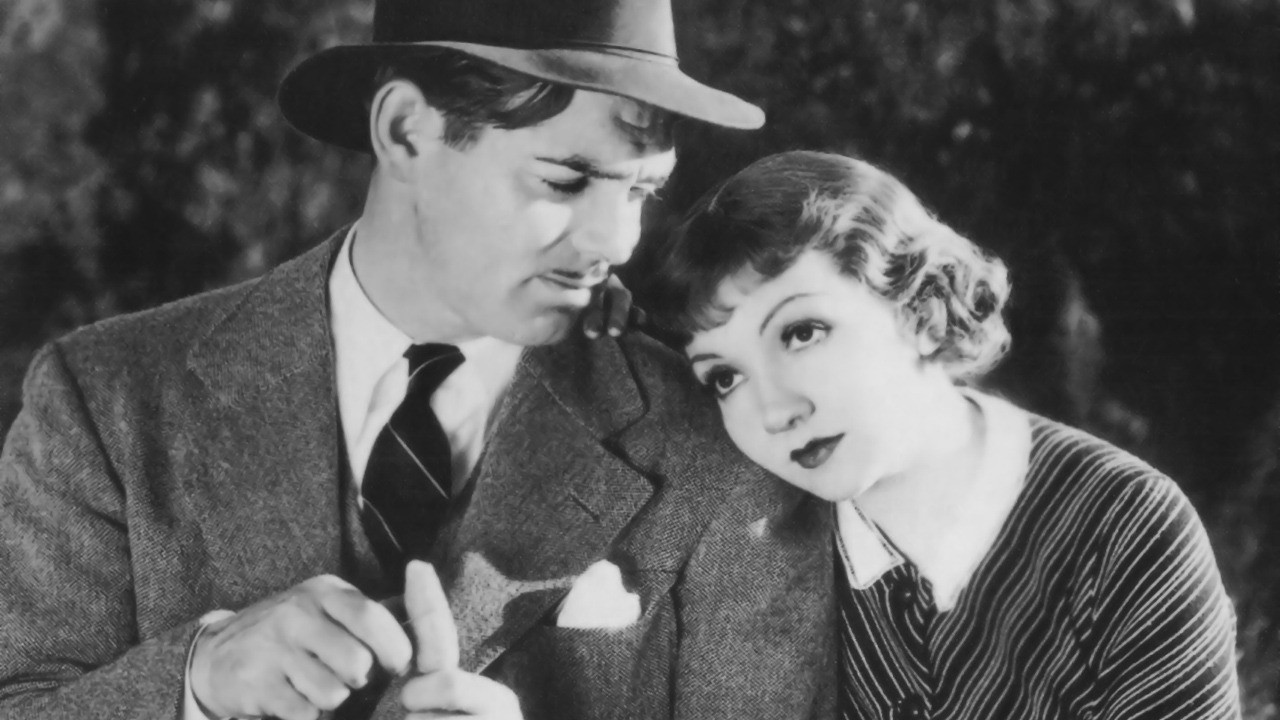
One of the most iconic movie stars of all time, Claudette Colbert changed the way female characters were created onscreen. She brought unbounded realism, grit and a resounding skill for comedy. Her voice is inimitably authoritative, while her wit-laden delivery has rarely been matched, especially with the kind of charm she possessed.
In Frank Capra’s delightful, adventurous, and for the time game-changing comedy, she plays a rich socialite who has married a gold-digger against her father’s wishes and on her way to be united with her new husband meets and falls for a cheeky, but kind reporter played by Clark Gable. He is unlike anyone she has encountered in the world she’s running away from, and thus becomes hopelessly captivating to her.
Colbert plays all the beats of the character to perfection, bringing the immaculate writing to another level. She redefined how women were perceived in American films. She was whip-smart, alluringly sensitive, and had an air of sovereignty that never feels unnatural. Her chemistry with Gable is what the term “tinderbox” was made for, with every interaction layered with intelligence, longing and an irresistible freshness.
10. Marcia Gay Harden – Pollock
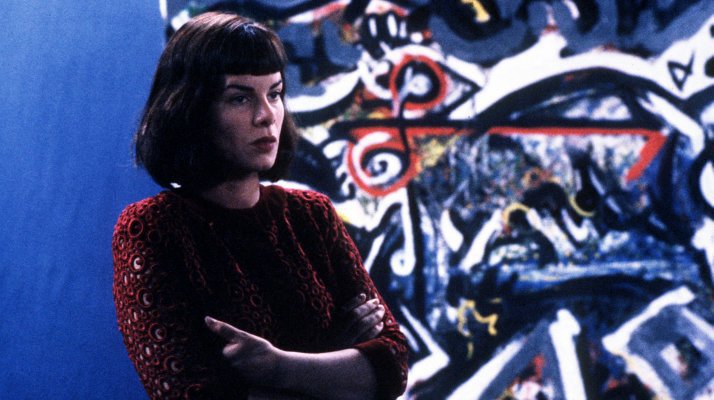
When the plaudit you have received leading up to the Oscar nominations announcement is the New York Film Critics Circle Award and have no other nominations from the major award ceremonies, you’re not exactly optimistic. Imagine actually winning the Oscar on top of that. A predictably amazed Gay Harden said in her speech, “I’d like to thank the members of the Academy for taking out the time and even viewing the tape.” That was how unexcited Hollywood seemed to be about this electric film directed by Ed Harris.
Starring Harris himself as the real-life painter Jackson Pollock who loses his chance at glory to alcoholism, the film is a piercing look at the painter’s irreverential creative process and how out of balance, uncontrollable the urges of a man of his capability can get. Gay Harden plays his devoted, loving wife who stands by him through all his misadventures and through his blemishes, is perhaps the only one who can see him for what he truly is.
Her steadfastness is never disproportionate, and her vivid generosity is remarkably moving. She has no intentions of meddling with honesty, and she makes the most brutal of realities sharply, earthly poetic. You can find everything her character has felt squirming behind her eyes, and yet if you blink, you’ll probably miss it. Fortunately, the Academy didn’t.
9. Ray Milland – The Lost Weekend
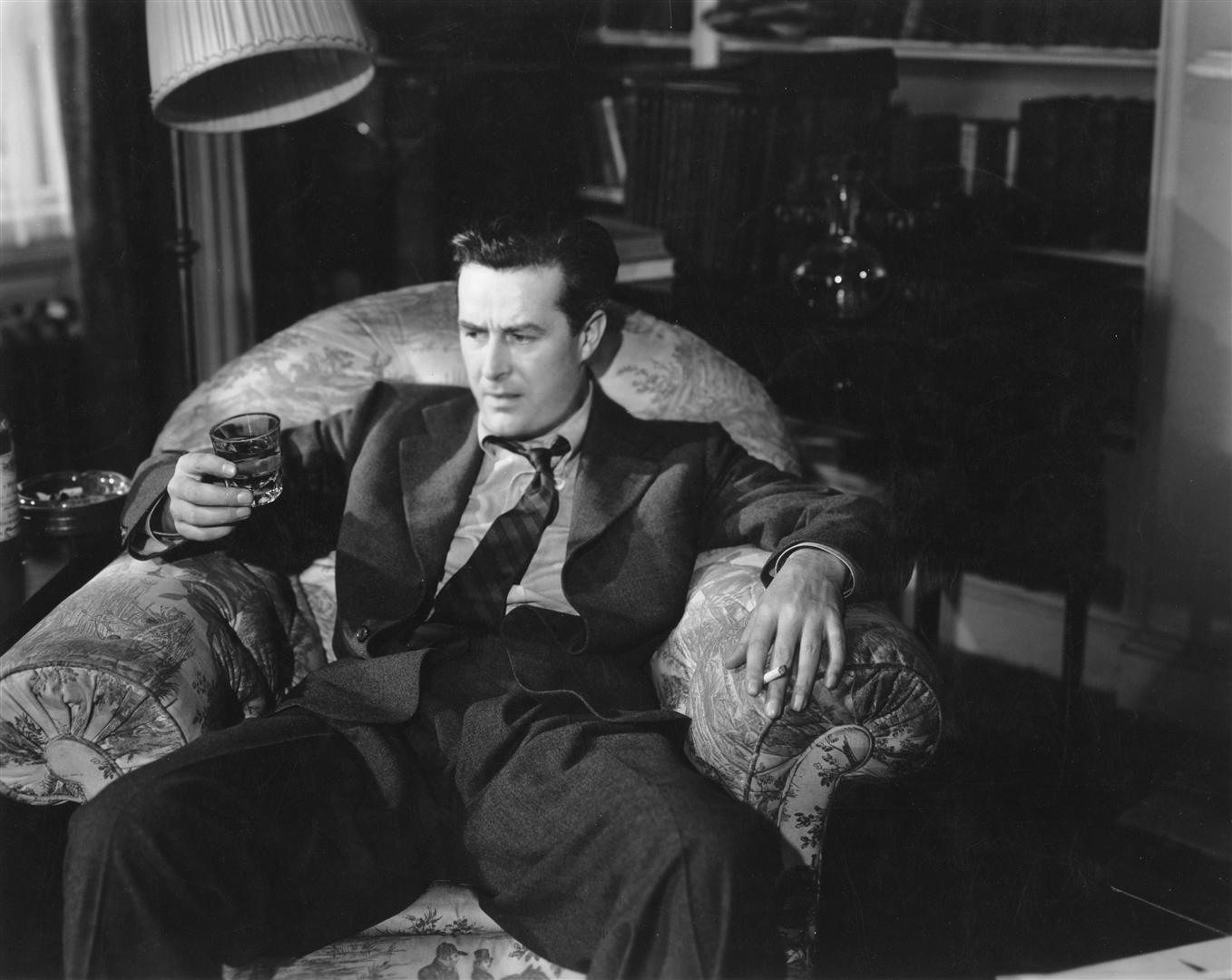
One of the most beautiful, confrontational and haunting films of its time “The Lost Weekend” has admittedly, not aged as well as other noir from the period. But it is still a fascinatingly brazen and bold character study that benefits from an electric performance by lead actor Ray Milland who won the Oscar for Best Actor and hardly ever did anything better, even in the Hitchcockian classic “Dial M for Murder”.
The film details a weekend in the life of alcoholic writer Don Birnam who is gradually losing the ability to see anything past his addiction. He is taken care of by his brother and his girlfriend who are willing to go to any lengths to see him get better, but all their attempts seem futile as he plunges deeper into a frightening darkness, accelerated by remorse and desperation.
Milland plays Birnam as a man of unmistakable cowardice. But what makes his portrayal so indelible is how relatable all of Don’s moral complexities are. He layers his performance with a devious depth and sincerity, putting a masterful realization of grief and despondency onscreen with utter effortlessness. The theatricality may prove a barrier to some, but those willing to look past that will find it a thundering, vital work of art.